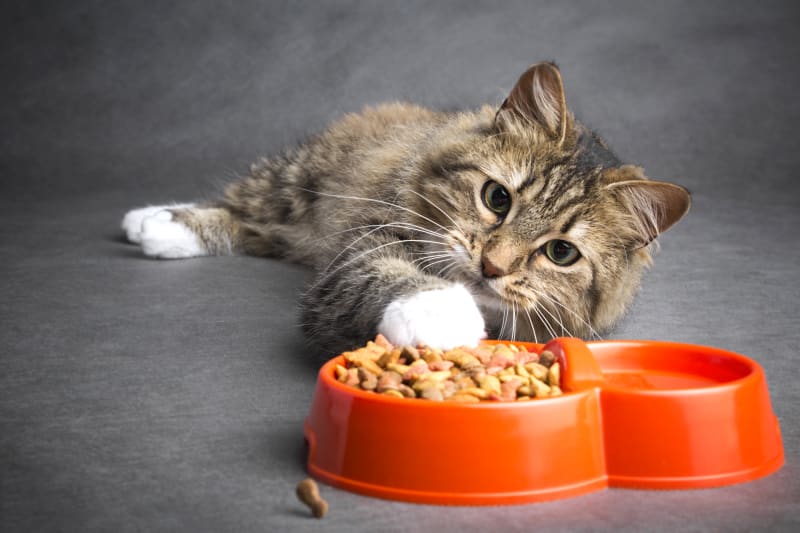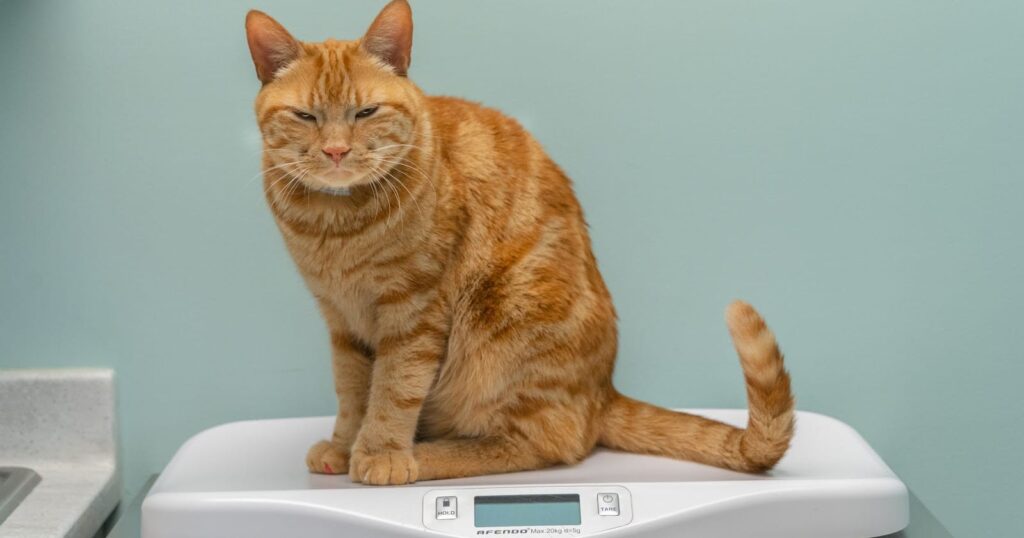Is Your Cat a Difficult Eater? Here’s What You Can Do

By Lauren Puckett
Eating is an essential part of living. But for our feline friends, it’s not always easy. Many cats can be picky eaters, while others tend to overeat. Over time, these issues can each lead to bigger health problems. Here’s what you can do if your cat is a difficult eater.
If Your Cat is a Picky Eater…
- Visit the Vet: First, make sure your cat is in good health. Visit the vet to rule out digestive problems, dental problems, and chronic illnesses such as inflammatory bowel disease or kidney disease.
- Try Different Textures: If your cat’s health is good, it may simply be that he or she doesn’t like the texture of food you’re providing. Try offering different textures –dry, canned, or semi-moist –and see if that jumpstarts eating. VCA Animal Hospitals advises, “For the semi-moist and canned food eaters, offer very small amounts at any one time. For a cat who is willing to eat dry, but just not all at once, it is reasonable to measure out the entire day’s portion all at once in the morning.”
- Increase the Appeal: Some human foods are safe to use on top of your cat’s food to increase its appeal. These include no-salt-added chicken or vegetable broth, fresh or frozen water-based vegetables such as broccoli, and dry scrambled eggs. Be sure to check with your veterinarian before trying these options and note that onions, garlic, leeks, scallions, shallots and chives are harmful to cats.
- Rule Out Environmental Factors: Cats can be fussy about their environment when eating. For instance, some don’t like an audience, while others may want to be stroked or even hand fed. Some cats are okay eating cold (wet) food, while others like their food warmed. Some cats don’t mind eating out of a dirty bowl, while others will only eat from a clean one (cleaning bowls is good practice anyway to avoid bacteria). Try changing different aspects of your cat’s environment to see if it makes a difference.
- Don’t Force a Schedule: Sometimes, the problem may be that your cat simply doesn’t like to eat on the mealtime schedule that you are offering. Some cats are grazers and eat when they feel like it. Try leaving food out beyond mealtime. However, refrain from doing this for canned food, as it may spoil.
If Your Cat Overeats…

- Visit the Vet: Just like when your cat is a picky eater, overeating may be due to underlying health issues. These include diabetes, hyperthyroidism, parasites, and bowel problems. Rule these out first.
- Exercise Portion Control: In consultation with your vet, feed your cat measured portions at each meal (once or twice a day) and don’t leave food out between meals. Now, while this will help your cat lose weight, it may also lead to begging, which brings us to the next point…
- Don’t Give in to Begging: When your cat begs for food, he may just be bored or seeking your attention. Don’t give in by providing more food or a treat. Instead, get out your cat’s favorite toy and have a play session.
- Pay Attention to Nutrition: It’s possible that your cat’s food isn’t providing the nutrients he or she needs. Paw Tracks advises, “Consider switching to a higher quality cat food that provides them with the vitamins and minerals they need to be healthy.”
- Provide More Volume: You can actually add food to your cat’s meal, as long as it consists of water-based vegetables. These may include green beans, broccoli, or cauliflower, and they will make your cat feel fuller after eating. Just be sure to consult your vet first.
- Use Interactive Food Toys: If your cat eats too quickly, interactive food toys are a good solution. VCA Hospitals recommends, “One low-tech option is to use a muffin tin and place pieces of the cat’s kibble, or bites of his canned food, into each muffin holder.” You can also hide different portions of your cat’s meal around the house. Finally, you can buy an interactive food toy that releases a few kibbles at a time, or a slow cat feeder bowl shaped like a maze.
- Make Sure Your Cats Eat Separately: In multi-cat households, competition and food envy can be a problem and cause your cat to eat greedily. To combat this, feed your cats from their own bowls in different areas of your home.
